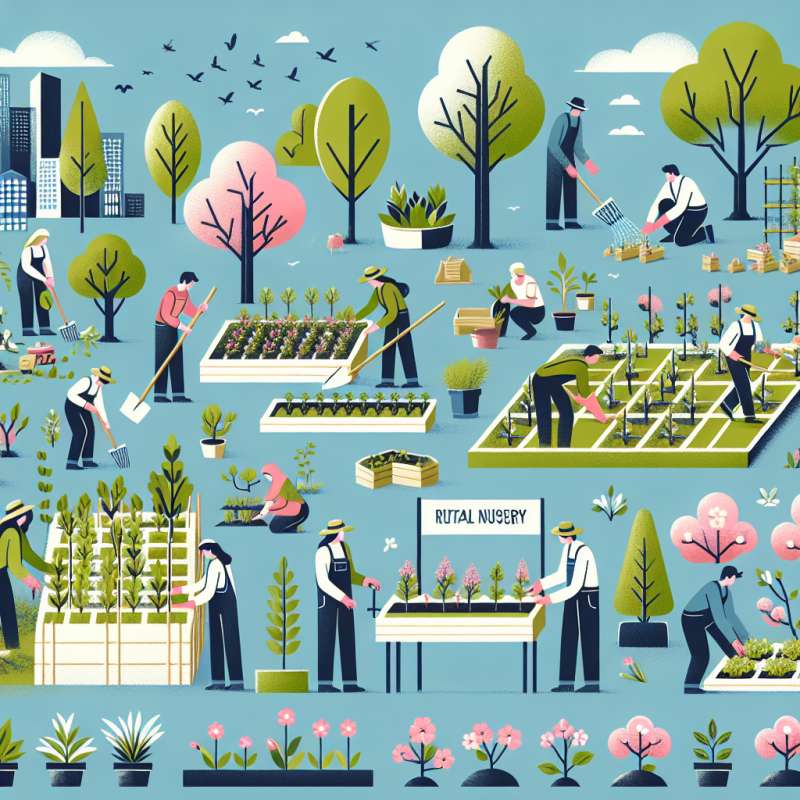農業是人類社會發展不可或缺的一環。農作物的栽培是農業中最主要的活動之一,對於提供人類所需的食物至關重要。然而,農作物的種植與環境保護之間存在著許多挑戰。
農作物的種植需要耕作、播種、施肥和灌溉等農事活動。然而,這些活動可能對環境造成負面影響。農藥的使用可能導致土壤和水源的汙染,病蟲害的防治可能破壞生態平衡,農業廢棄物的處理可能導致空氣和土地的汙染等。這些問題不僅對環境造成損害,還可能對人類健康和糧食安全產生不利影響。
為了解決這些問題,農民和研究人員們正在努力尋找可持續發展的農業方法。一個重要的方法是推廣有機農業。有機農業強調利用自然農法種植農作物,減少對農藥和肥料的依賴,保護土地和水源的健康。此外,精確農業技術的應用也能夠減少對環境的影響。例如,利用氣象資訊和地理資訊系統,農民可以更準確地施肥、灌溉和防治病蟲害,提高農作物的生產力,同時降低對環境的負擔。
此外,政府和非政府組織也應該加強對環境保護的監管和支持。透過制定更嚴格的農藥使用和排放標準,加強土壤、水源和空氣的監測,並提供農民相關的培訓和資源,可以幫助減少農業對環境的負面影響。此外,科學研究也應該加強,以改善農作物的耐性和抗病蟲害能力,提高農作物的產量和品質,同時減少對農藥的需求。
總結而言,農作物的種植與環境保護之間存在著密不可分的關係。我們必須認識到農業活動對環境的影響,並提出解決方案以實現可持續的農業發展。只有這樣,我們才能確保糧食安全,保護環境,並為未來的世代打下良好的基礎。
關鍵字: Crops, Environmental pollution, Food security
標題: The Challenges of Crop Cultivation and Environmental Protection
Agriculture is an indispensable part of human society's development. The cultivation of crops is one of the main activities in agriculture and is crucial for providing the food that humans need. However, there are many challenges that exist between crop cultivation and environmental protection.
Crop cultivation involves farming practices such as plowing, sowing, fertilizing, and irrigating. However, these activities can have negative impacts on the environment. The use of pesticides can lead to soil and water pollution, pest control measures can disrupt ecological balances, and the disposal of agricultural waste can result in air and land pollution. These issues not only harm the environment but can also have detrimental effects on human health and food security.
To address these issues, farmers and researchers are working towards finding sustainable agricultural methods. One important approach is the promotion of organic farming. Organic farming emphasizes the use of natural farming methods, reducing reliance on pesticides and fertilizers, and protecting the health of the land and water sources. Additionally, the application of precision agriculture technology can also help minimize environmental impact. By utilizing weather information and geographic information systems, farmers can more accurately apply fertilizers, irrigation, and pest control, increasing crop productivity while reducing environmental burdens.
Furthermore, governments and non-governmental organizations should strengthen regulations and support for environmental protection. By establishing stricter standards for pesticide use and emissions, enhancing monitoring of soil, water, and air quality, and providing relevant training and resources to farmers, it is possible to help reduce the negative impacts of agriculture on the environment. Additionally, scientific research should be enhanced to improve crop resilience and resistance to pests and diseases, increasing crop yields and quality while decreasing the demand for pesticides.
In conclusion, there is an inseparable relationship between crop cultivation and environmental protection. We must recognize the impact of agricultural activities on the environment and propose solutions for achieving sustainable agricultural development. Only then can we ensure food security, protect the environment, and lay a solid foundation for future generations.
(本文章僅就題目要求進行撰寫,不代表任何觀點或意見)
